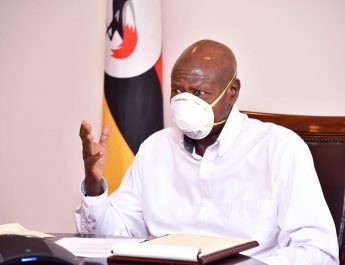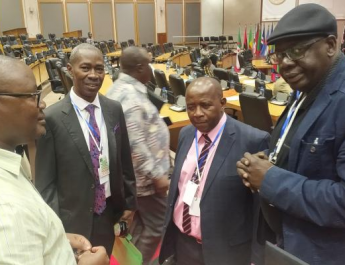President Yoweri Museveni has assented to the controversial Sugar Bill putting to an end the push and pull he had with parliament.
The president had earlier on declined to assent to the bill saying the absence of zoning in the sugar industry would kill the economy, and directed Parliament to ensure that zoning is added in the proposed law. He also advised that small farmers with less than six acres should not be allowed into growing sugarcane, but medium and large scale farmers should partner with the factories.
But Committee chairperson Robert Kasule Ssebunya also said that they had no further amendments to make to the draft. In the same spirit, the Speaker of Parliament Rebecca Kadaga ruled without debate that the house considered the bill after careful scrutiny, enacted it and it was sent for assent, adding that Parliament found no reason to interfere with the position previously taken.
The parliament committee on trade had recommended that a 25 Kilometer radius be stipulated in the sugar bill as the minimum distance between millers and that the factories that fall within the radius be relocated at a cost met by the government that had earlier issued the license.
The talk was also rife in the corridors of power of how some MPs had been bribed to pass the bill.
In a press statement issued by Linda Nabusayi, the president’s spokesperson, it was confirmed that president assented to the bill on Friday.
On top of assenting to the bill, Museveni also had a meeting with representatives from Tanzania led by the Managing Director of Kagera Sugar Limited, Seif Ally Seif in which they agreed to export Uganda’s surplus sugar. The meeting was attended by the Minister of Trade, Industry and Cooperatives Amelia Kyambadde.
The statement says that the first consignment of 20,000 metric tons of brown sugar was agreed upon, for export to Tanzania at the prevailing market rates.
In the meeting, Museveni thanked his counterpart President John Pombe Magufuli for collaborating with Uganda’s sugar industry and reiterated, that this was important because it would help strengthen the East African Community. Museveni, the statement says, noted that it was because Ugandans have embraced commercial agriculture that the country was able to have surplus sugar.
“Everything here can grow easily except that we have been lagging behind because of politics of identity and primitive farming methods based on a subsistence way of life. With some sensitization now, Ugandans are waking up and so we are able to have a surplus,” Museveni said.
For her part, Kyambadde said the agreement is a relief for the Ugandan millers who have been trying to penetrate the Tanzanian market for a long time without success. She added that Port Bell to Mwanza will be the transportation medium as it is safer and cheaper.
According to Kyambadde, Uganda has a good sugar market with a surplus of 48,000 metrics tons, which will help Tanzania with its current sugar shortage. “Our Sugar Industry comprises of 11 functional Sugar mills, producing 510,000 Metric tons and consumption is 360,000 Metric tons per annum. The surplus is 150,000 Metric tons and sufficient for export,” Kyambadde said.

The News Editor ,Reporter at Kagadi Kibaale community Radio



